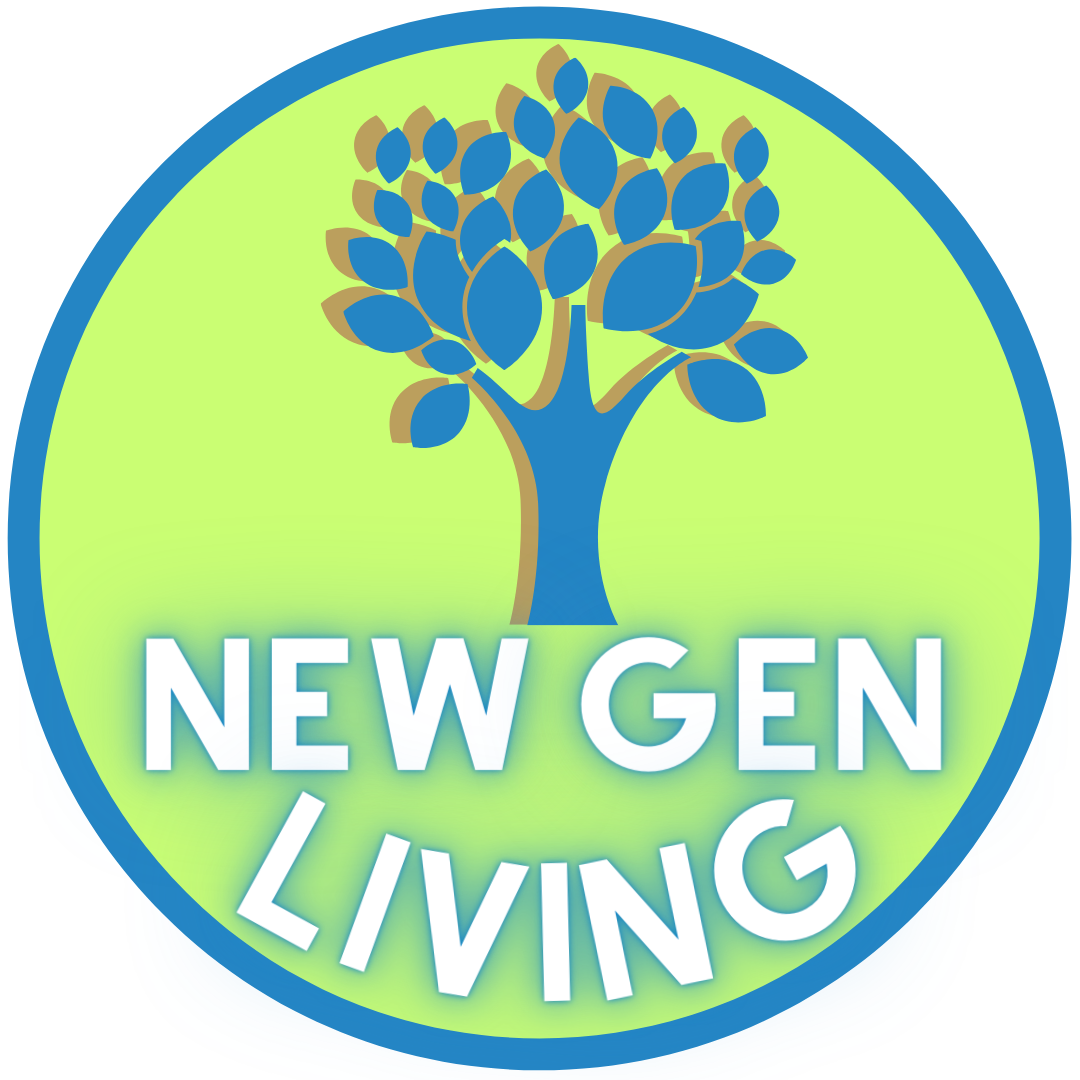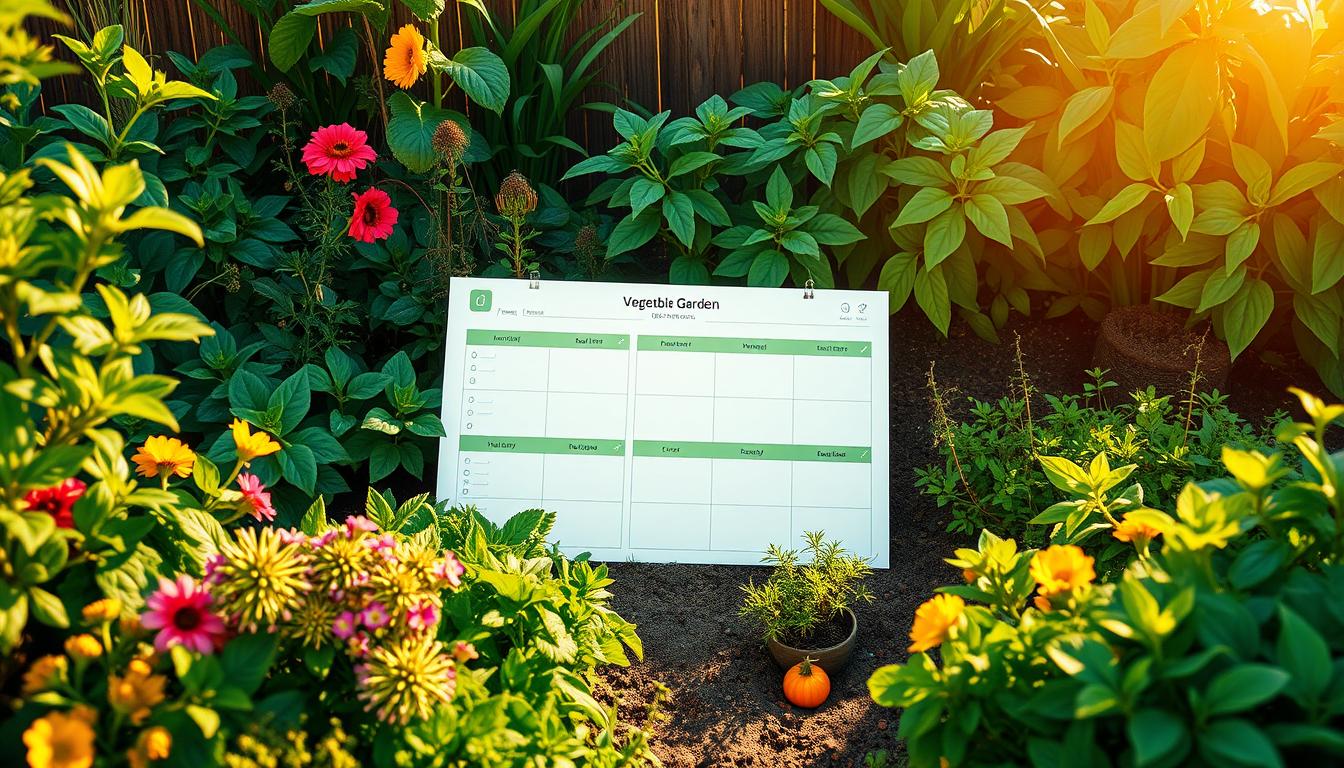Organizing your outdoor space can feel overwhelming, but it doesn’t have to be. With the right tools, you can create a thriving area that grows with you every step of the way. This comprehensive planner is designed to simplify the process, offering customizable layouts for raised beds, square foot designs, and traditional plots.
Whether you’re a beginner or an experienced gardener, this resource provides everything you need. From planting zone charts to sunlight maps, it helps you avoid common mistakes like planting too early. You’ll also gain access to exclusive guides, including companion planting diagrams and a Territorial Seed Company catalog.
Planning your space has never been easier. This tool ensures you make the most of every season, helping your plants thrive. Start your journey today and enjoy a well-organized, productive area that brings joy all year round.
Key Takeaways
- Customizable layouts for raised beds, square foot designs, and traditional plots.
- Includes planting zone charts and sunlight maps for better planning.
- Helps avoid common mistakes like early planting.
- Provides companion planting diagrams for healthier growth.
- Access to exclusive resources like the Territorial Seed Company catalog.
Introduction to the Free Vegetable Garden Planner Template
Creating a thriving outdoor space starts with the right tools and a clear plan. This comprehensive resource includes 38 customizable pages, designed to adapt to your needs over multiple years. Whether you’re tracking crop rotations or preparing for winter, this tool has you covered.

The binder-ready format ensures your plans evolve as your space grows. Integrated frost date calculators help you avoid planting too early or too late. Crop rotation tracking features keep your soil healthy and productive.
Families will love the kid-friendly coloring pages, making it easy to involve everyone in the process. For raised bed preparation, the rainfall calculator and soil volume estimator take the guesswork out of planning.
Here’s a quick overview of the key features:
| Feature | Benefit |
|---|---|
| Binder-ready format | Accommodates multi-year planning |
| Frost date calculators | Ensures timely planting |
| Kid-friendly pages | Encourages family involvement |
| Rainfall calculator | Optimizes water usage |
Many users have shared success stories, with some doubling their harvests using this system. Start your journey today and see the difference a well-structured plan can make.
Benefits of Using a Garden Planner
A well-structured plan can transform your gardening experience, making it more enjoyable and productive. By using a planner, you can stay organized, maximize your space, and save valuable time. Let’s explore how this tool can elevate your efforts.
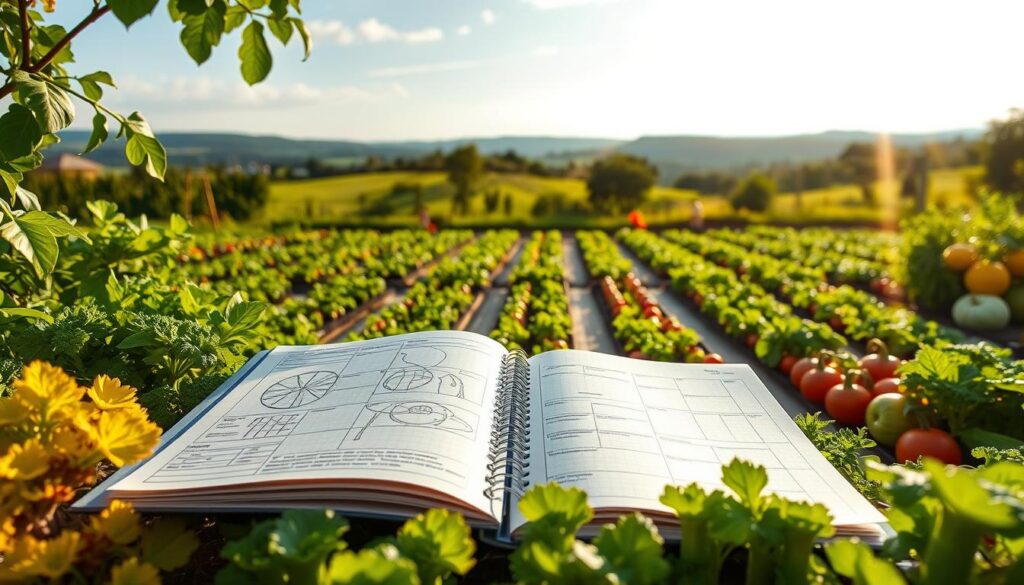
Stay Organized and Efficient
One of the biggest advantages of a planner is its ability to keep everything in one place. Color-coded planting calendars ensure you never miss a succession planting window. Automated reminders based on your ZIP code help you plant at the right time, avoiding costly mistakes.
For example, a pest control matrix included in the planner reduces the need for chemical interventions. This feature not only saves time but also promotes healthier growth for your plants.
Maximize Your Garden Space
Strategic planning allows you to make the most of every square foot. Vertical growing and interplanting schedules are excellent space-saving techniques. A case study showed how a 4’x20′ bed produced 15 different varieties through careful planning.
By using a planner, you can prevent overcrowding and optimize harvest timing. This ensures your gardening efforts yield the best results year after year.
How to Choose the Right Garden Plan for Your Space
Choosing the perfect layout for your growing area can make all the difference. Whether you have a sprawling backyard or a compact balcony, the right plan ensures your space thrives with healthy plants and vibrant flowers. Start by evaluating your area and selecting a design that aligns with your goals.
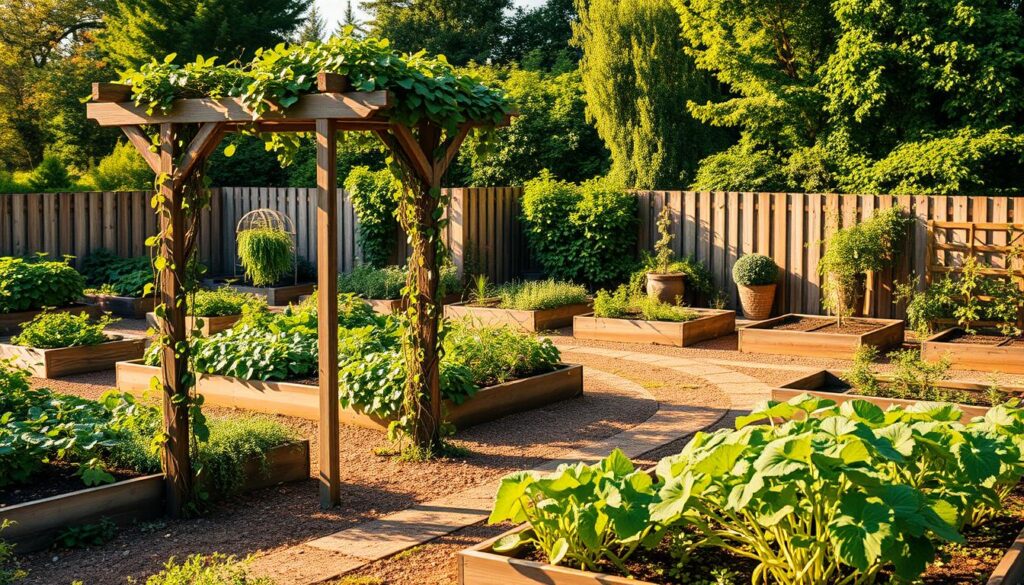
Assess Your Garden Area
Begin by analyzing your space. Check sunlight patterns throughout the day to determine the best spots for sun-loving plants. Use sun mapping tools to track how light moves across your zone. Soil quality is another critical factor—test it to ensure it supports healthy growth.
For urban spaces, consider balcony configurations from SmartGarden. These layouts maximize limited areas while adding beauty. If your site is windy or partially shaded, look for plans with special features to address these challenges.
Select a Plan That Fits Your Needs
Once you’ve assessed your area, choose a layout that suits your goals. Compare yield projections between traditional 20’x40′ plots and compact 4’x20′ raised beds. Raised beds often produce higher yields in smaller spaces, making them ideal for urban gardens.
Here’s a quick comparison to help you decide:
| Layout | Space Required | Yield Potential |
|---|---|---|
| Traditional Plot | 20’x40′ | Moderate |
| Raised Bed | 4’x20′ | High |
For additional guidance, scan QR codes linking to video tutorials on using Gardener’s Supply planning tools. These resources simplify the process, helping you create a thriving space tailored to your needs.
Tips for Optimizing Your Garden Layout
Designing an efficient layout can significantly boost your plant growth and health. By focusing on sunlight access and pest management, you can create a thriving space that enhances plant life. Here are some practical tips to get started.
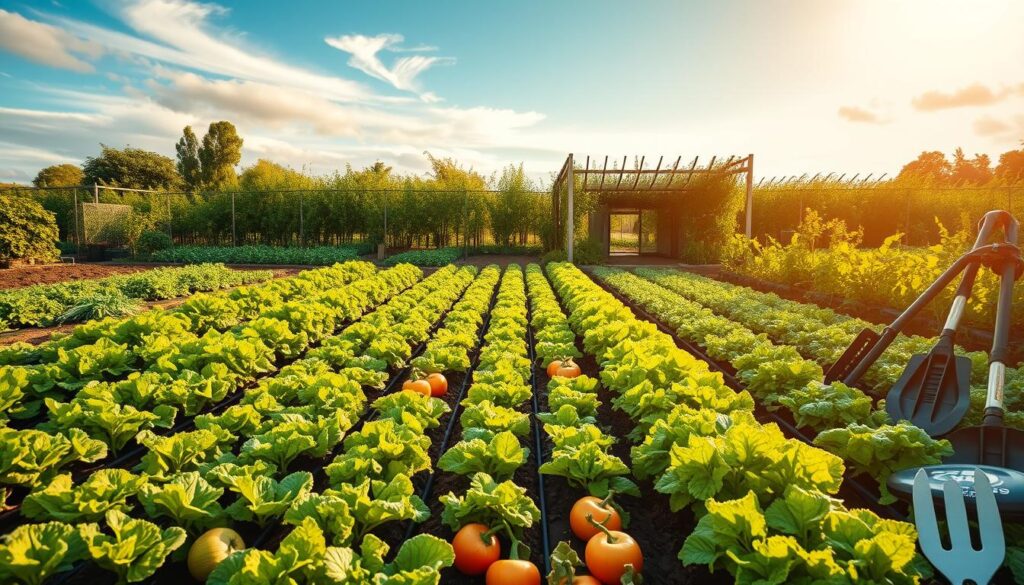
Plant Placement for Sunlight
Sunlight is essential for healthy growth. Track sunlight patterns using free smartphone apps to identify the best spots for your plants. Place taller plants on the north side and shorter ones on the south to ensure even light distribution.
Trellising systems are another great way to maximize sunlight access. They allow plants to grow vertically, increasing yield while maintaining proper spacing. Watch time-lapse videos to see how proper spacing prevents disease spread.
Companion Planting for Pest Control
Companion planting is a natural way to reduce pests. For example, the marigold-nasturtium-tomato trio acts as a powerful pest deterrent. These plants repel harmful insects while attracting beneficial ones.
Here’s a quick guide to effective companion planting:
| Plant | Companion | Benefit |
|---|---|---|
| Tomato | Marigold | Repels nematodes |
| Basil | Tomato | Deters flies and mosquitoes |
| Nasturtium | Cucumber | Attracts aphids away |
By following these tips, you can create a well-organized, productive space that supports healthy plant growth.
Additional Resources and Tools for Garden Planning
Enhancing your planting strategy requires the right tools and resources. Whether you’re a beginner or an experienced grower, having access to helpful materials can make a significant difference. From downloadable worksheets to advanced online planners, these tools simplify the process and help you achieve better results.
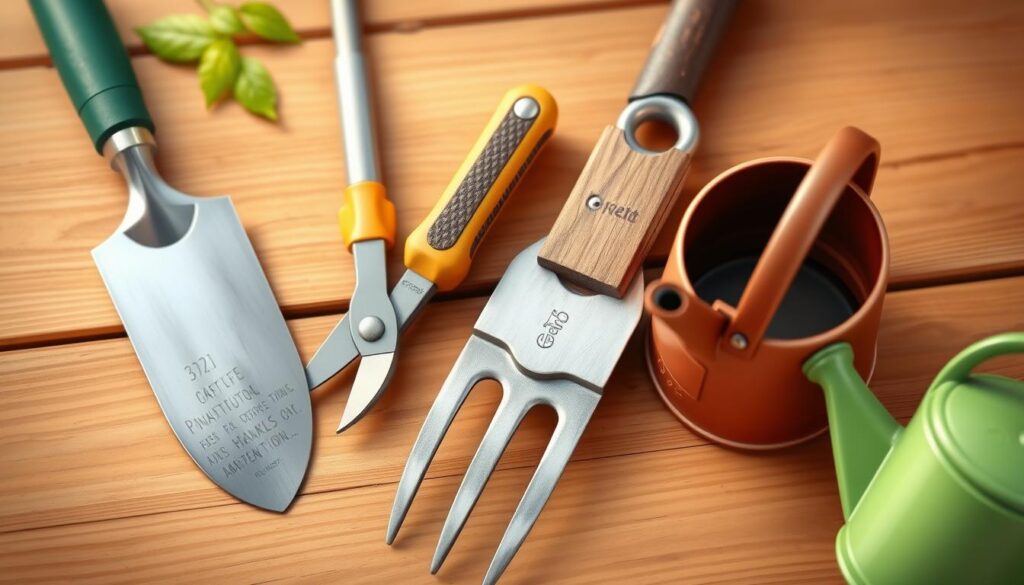
Downloadable Worksheets and Guides
Downloadable worksheets are a great way to stay organized. For example, the vegetable maturity date calculator helps you track planting and harvesting timelines. These resources are available as PDFs, making them easy to print or use digitally.
Integrate these worksheets with digital planners using tablet apps for seamless planning. This approach allows you to update your plans on the go and keep everything in one place.
Here’s a quick guide to some lesser-known resources:
- Seed Savers Exchange planting depth templates for precise sowing.
- Companion planting charts for healthier plant growth.
- Soil testing guides to ensure optimal conditions.
Online Garden Planners
Online planners offer advanced features for detailed planning. SmartGarden’s community tools allow you to share ideas with other growers. Mother Earth News provides architectural tools for designing complex layouts.
Here’s a comparison of popular online planners:
| Planner | Key Features |
|---|---|
| SmartGarden | Community sharing, customizable layouts |
| Mother Earth News | Architectural tools, detailed zone maps |
| GroVeg | Interactive calendars, pest management tips |
These planners also come with exclusive video libraries showcasing real transformations. These videos provide inspiration and practical tips for your own space.
By leveraging these resources, you can create a well-organized and productive area tailored to your needs. Start exploring these tools today and take your planting strategy to the next level.
Conclusion
Planning your outdoor space doesn’t have to feel overwhelming. With the right tools, you can turn complex tasks into simple, manageable steps. This approach saves time and ensures your efforts yield results for years to come.
Join the Paint Water Farm community to connect with fellow enthusiasts and share tips. Stay tuned for advanced features like automated harvest yield predictors, designed to make your experience even better.
As one gardener wisely said, “Preparation in winter brings abundance in spring.” Start your journey today and see how a well-organized plan transforms your space.
Download the resource now and share your first harvest photos with us. Let’s grow together and make every season a success!
